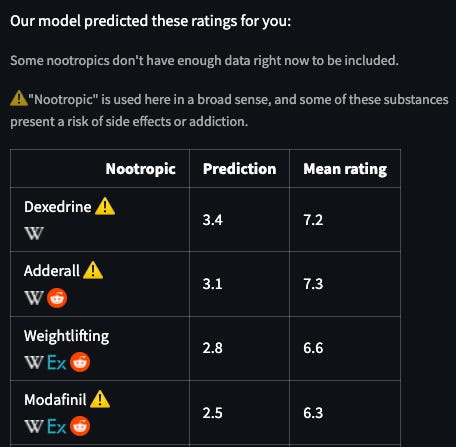Personal Science Week - 19 May 2022
Hypnosis, Longevity is taking longer than we thought, Nootropics survey, and more
Hypnosis is another way of getting into the Flow
Hypnosis has always seemed a little bizarre, maybe even dangerous. We’ve all seen demonstrations involving seemingly normal people who, under the hypnotists’ spell, appear to willingly do crazy things. Is this just fakery? or is there something more significant happening?
David Spiegel, associate chair of psychiatry and behavioral sciences is an expert on the science behind hypnosis. He says we shouldn’t think of it as a trance – a spooky loss of control to a professional manipulator. Instead, hypnosis is just an example of a “flow state”. We all know this feeling, sometimes described as “being in the zone”, where time seems to stop and you feel thoroughly immersed in an activity. Hypnosis, like meditation, is just another, normal, desirable human psychological state we enter whenever we focus ourselves.
Spiegel makes an app, Reveri, which attempts to package his hypnosis sessions into a series of recorded steps. For $15/month, the app claims to help you achieve your goals of healthier eating, reduced anxiety, better sleep, and more.
Spiegel says about 2/3rds of people are hypnotizable, and he has a simple test to see if you’re one of them. The “eye roll” test checks whether the whites of your eyes are visible when you look straight up without moving your head. Watch it demonstrated in an Andrew Huberman podcast episode with David Spiegel. (See Podcast Notes and also notes from Juan Pablo Aranovich). Time magazine has a short overview of the subject, including additional details from Spiegel.
Does it work? We’ll wait to hear more from others who’ve tried it first hand. Meanwhile, we’ll open our minds a little bit more to the possibility that hypnosis is one of many, normal and healthy ways to improve our mental faculties.
Longevity is taking longer than we thought
In an interview with Noah Smith, futurist Ramez Naam and author of the 2005 book More than Human admits he was wrong in nearly all his predictions about biology and longevity.
We have to face up to phenomena like Eroom’s Law. In multiple fields, and particularly in pharma and biology in general, the difficulty of making new discoveries and bringing them to market is rising exponentially. Yes, our tech is getting exponentially better. But the problem is also exponentially harder the deeper you get into it. That’s why I argued years ago that The Singularity Is Further Than it Appears.
Mez’s book was among the big firsts in an ongoing genre highlighting the exciting possibilities in human enhancement. Now, coming up on a quarter of a century since the initial mapping of the human genome, that earlier optimism is looking harder to justify.
Rate your favorite nootropics
Have you tried nootropics, those performance-enhancing drugs or procedures that claim to increase mental or physical ability? Rate those you’ve tried and see how your results compare to thousands of other respondents: https://www.nootroflix.com/. Especially nice is how the site uses your answers to suggest other nootropics to try, based on others who answers were similar to yours.
Here are the first few suggestions it gave me when I told it that I’d tried magnesium without noticing any effects.
Astral Star Codex has a nice summary of the initial results and suggests that it proves nothing other than placebo effects and the natural bias to overestimate efficacy when something costs money or requires extra effort.
About this newsletter
Among all the information and ideas that bombard us, how do you know what's true? A surprisingly high amount of what you read in public could be described as hearsay: somebody reporting on what somebody else did or said.
Personal Science is the process of using the scientific method to solve problems and get better results on an individual, personal level. Following the motto of the Royal Society, established in 1660, nullius in verba, we take nobody's word for it.
Although this newsletter will publish weekly, each edition is intended to be as timeless as possible. Links and summaries will go to whatever we thought was most useful, regardless of when it was published. Hopefully the freshest, latest edition is the most interesting, but the older issues are worth reading as well.


